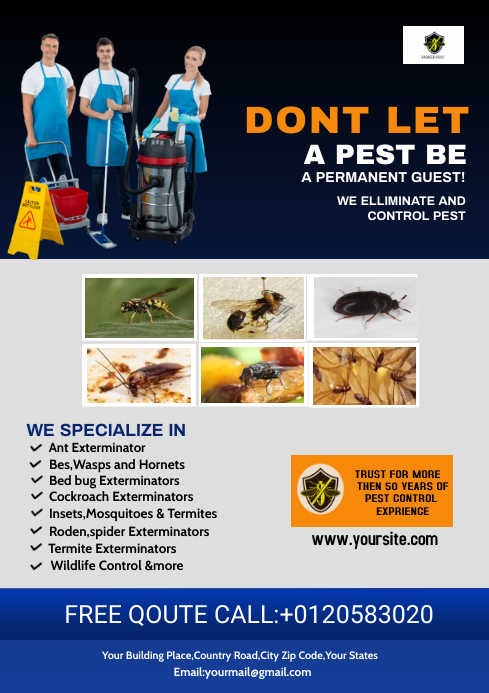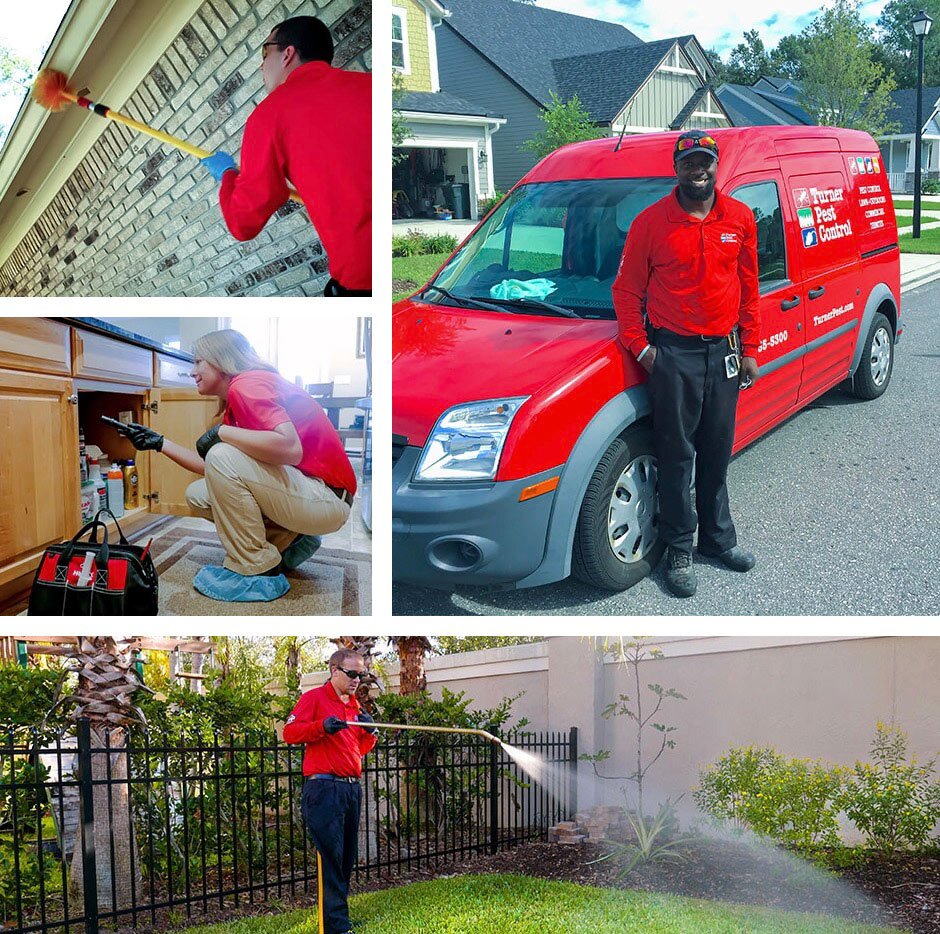Budget Friendly Pest Control Auckland Experts: Maintain Your Residential Or Commercial Property Safe
Budget Friendly Pest Control Auckland Experts: Maintain Your Residential Or Commercial Property Safe
Blog Article
Understanding Different Kinds Of Pest Control Techniques and Their Efficiency
The management of insects is an essential element of maintaining the health and wellness and honesty of different atmospheres, from agricultural areas to domestic homes. When thinking about bug control approaches, it is necessary to comprehend the varied techniques offered and their varying levels of performance. From chemical treatments to biological solutions, each method presents distinct advantages and constraints. By checking out the nuances of these insect control strategies, a thorough understanding of how to resolve bug problems can be established.
Chemical Insect Control Approaches
Chemical bug control methods play an essential duty in successfully managing and eradicating pest problems in numerous environments. One of the key benefits of chemical pest control is its ability to give fast and targeted remedies to pest troubles. Pest Control Auckland.
Nonetheless, it is important to consider the prospective risks and drawbacks connected with chemical insect control techniques. Overreliance on chemicals can cause the growth of chemical resistance in pests, making them more difficult to regulate in the future. Furthermore, the usage of certain chemicals can have damaging effects on non-target organisms, the setting, and human health otherwise used appropriately.

Biological Parasite Control Methods
Using all-natural predators and virus to handle insect populaces efficiently, organic pest control techniques supply a sustainable and eco-friendly approach to pest management. By promoting the activity or presenting of organisms that naturally exploit or infect insects, such as ladybugs for aphid control or certain bacteria for caterpillar infestations, organic control can aid maintain parasite populations at convenient degrees without the requirement for artificial chemicals. This method is particularly useful for natural farming techniques, as it stays clear of using possibly dangerous materials while preserving crop health.

Physical Bug Control Techniques
While biological parasite control approaches concentrate on using all-natural predators and virus, physical parasite control techniques make use of physical and mechanical obstacles to take care of insect populaces. These methods are find typically considered environmentally friendly as they reduce making use of chemicals. Physical insect control includes techniques such as trapping, making use of obstacles like nets or screens, and physically removing insects from the location.
Traps are generally utilized in physical parasite control to capture and get rid of bugs like insects and rodents. One more physical approach is the usage of barriers such as displays, fences, or webs to protect against bugs from going into or infesting certain locations.
Natural Bug Control Techniques
Incorporating natural killers and plant-based repellents is a key method in implementing efficient natural insect control approaches. By urging the existence of helpful bugs like ladybugs, lacewings, or predacious termites, gardeners can naturally control pest populaces. These predators feed upon usual yard insects such as mites, caterpillars, and aphids, helping to preserve a well balanced environment without the requirement for chemical interventions.

Additionally, implementing social practices such as crop turning, friend growing, and preserving correct plant health can additionally improve the effectiveness of natural insect control approaches. These methods not only assist in protecting against bug invasions however also advertise biodiversity and general ecosystem strength. By incorporating these natural strategies, people can efficiently take care of pests while minimizing ecological impact.
Integrated Insect Management (IPM) Approach
Carrying Out an Integrated Insect Administration (IPM) method is essential for successfully controlling pest populaces while lessening dependence on chemical pesticides. IPM is a detailed and lasting approach that incorporates various parasite control approaches to achieve long-term solutions. This method focuses on control, tracking, and prevention to attend to parasite issues in an eco pleasant fashion.
IPM integrates organic, cultural, physical, and mechanical techniques with the critical and limited use chemicals when necessary. By emphasizing aggressive steps such as environment modification, biological control, and exemption, IPM intends to reduce insect populations and their effect on the community. Routine surveillance is essential in IPM to examine parasite degrees accurately and identify the most appropriate control techniques.
Among the key advantages of IPM is its capability to minimize the risks related to too much chemical usage, such as ecological contamination and injury to non-target microorganisms. Furthermore, IPM advertises a much more holistic technique to pest management by taking into view it now consideration the overall environment dynamics. Generally, the IPM technique supplies a lasting and efficient service for pest control while promoting ecological responsibility.
Verdict
In final thought, recognizing the different kinds of insect control methods and their performance is important in effectively handling insect problems. Integrated Pest Monitoring (IPM) method, which combines different methods for lasting bug control, is progressively being identified as a ecologically friendly and all natural solution.
Chemical insect control approaches play a critical function in efficiently taking care of and eliminating pest infestations in numerous atmospheres.Using natural predators and pathogens to handle bug populations properly, organic bug control methods offer a environment-friendly and lasting method to pest management. By promoting the activity or presenting of microorganisms that normally prey on or infect parasites, such as ladybugs for aphid control or particular germs for caterpillar invasions, organic control can help maintain parasite populations at convenient degrees without the need for synthetic chemicals.While biological bug control techniques concentrate on utilizing natural predators and virus, physical bug control approaches use physical and mechanical obstacles to take care of parasite populaces. Integrated Parasite Monitoring (IPM) method, which integrates numerous techniques for lasting bug control, is significantly being recognized as a eco pleasant and all natural solution.
Report this page